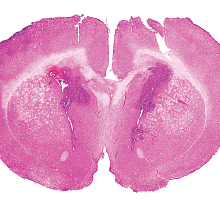People Taking Sedatives for Insomnia May Be More Likely to Have High LDL
A large population analysis has found that people with insomnia (including those with difficulty falling asleep, prolonged nocturnal waking, and undesired early morning waking) do not have higher cholesterol levels than those with healthy sleep patterns.
However, in the subset of people with insomnia who took sleeping pills, a roughly twofold increased risk of having high low-density lipoprotein (LDL) was observed.
Study author Nicholas Vozoris, M.D., a respirologist at St. Michaels Hospital in Toronto, noted that the observed association between sleeping pill use and elevated LDL cholesterol was concerning given the rising rate of sedative use in recent years, but he also noted that the results might reflect that people taking sedatives have a more severe form of insomnia that contributes to the higher cholesterol values.
He said that additional research is important to confirm this association and delineate if a specific type of sedative might be responsible for elevating LDL levels.
This study, which made use of data from the National Health and Nutrition Examination Surveys, was published in the journal Sleep.
Large Population Study Finds Link Between Age at Starting School And ADHD Diagnosis
The age at which a child enters school may influence his or her risk of being diagnosed with attention-deficit/hyperactivity disorder (ADHD) and receiving ADHD medication, according to a study published in the Journal of Pediatrics.
Researchers in Taiwan examined cohort data from 378,881 school-aged children (aged 4 to 17) between 1997 and 2011 and grouped all those who received either a diagnosis of ADHD and/or prescription for ADHD medication by birth month.
They found that as a whole, children born in August were more likely to be diagnosed with ADHD than those born in September (the cut-off birthdate for school enrollment is August 31 in Taiwan). The association between ADHD diagnosis and birth month was less prevalent as diagnosis age increased; an August birth was associated with 1.62 increased odds of ADHD diagnosis in preschool children, as well as 1.44 increased odds in adolescents.
“Our findings emphasize the importance of considering the age of a child within a grade when diagnosing ADHD and prescribing medication to treat ADHD,” the authors wrote.
Experimental Drug May Improve Brain Repair Following TBI
Following a traumatic brain injury (TBI), immune cells converge at the trauma site to initiate healing, but their activity can also trigger unwanted inflammation that can lead to further neurological damage.
Researchers at the University of Kentucky have been testing a novel compound called MW151 that can reduce the levels of specific pro-inflammatory chemicals called cytokines while preserving other immune functions.
A previous study by Linda Van Eldik, Ph.D., and colleagues found that postinjury administration of MW151 suppressed acute cytokine up-regulation and downstream cognitive impairment in an animal model of mild TBI.
In the current study, Van Eldik’s group found that low-dose administration of MW151 suppressed levels of the cytokine interleukin-1 beta (IL-1β) while not affecting the migration or activity of microglial cells that clear out cellular debris in a different animal model of TBI called midline fluid percussion injury. The findings appeared in PLoS One.
“TBI represents a major unmet medical need, as there is currently no effective therapy to prevent the increased risk of dementia and other neurologic complications, such as posttraumatic epilepsy, neuropsychiatric disorders, and postconcussive symptoms such as headaches, sleep disturbances, memory problems, dizziness, and irritability,” Van Eldik said in a press statement.
Anxiety Disorders Linked With Altered Perception of Stimuli
When it comes to emotional experiences, people with anxiety tend to overgeneralize, according to a report in Current Biology.
A research team in Israel trained a group of people with and without generalized anxiety disorder (GAD) to associate a distinct tone with one of three outcomes: monetary loss, gain, or no consequence. Following this training, the researchers presented the participants with a new set of tones (the three original plus six of similar frequency to both the loss and gain tones) to the participants and asked if any of them sounded familiar.
Compared with controls, patients with GAD were much more likely to overgeneralize, or mistake a new tone for one of the ones they heard in training, with a slightly higher rate of error for tones associated with loss.
Subsequent imaging analysis showed that the GAD patients had different levels of brain activation during the training phase of the study, and some of this activity persisted even after the training was complete.
“We show that in patients with anxiety, emotional experience induces plasticity in brain circuits that lasts after the experience is over,” senior author Rony Paz, Ph.D., of the Weizmann Institute of Science in Israel said in a press statement. “Such plastic changes occur in primary circuits that later mediate the response to new stimuli, resulting in an inability to discriminate between the originally experienced stimulus and a new similar experience. … Importantly, they cannot control this.” ■




